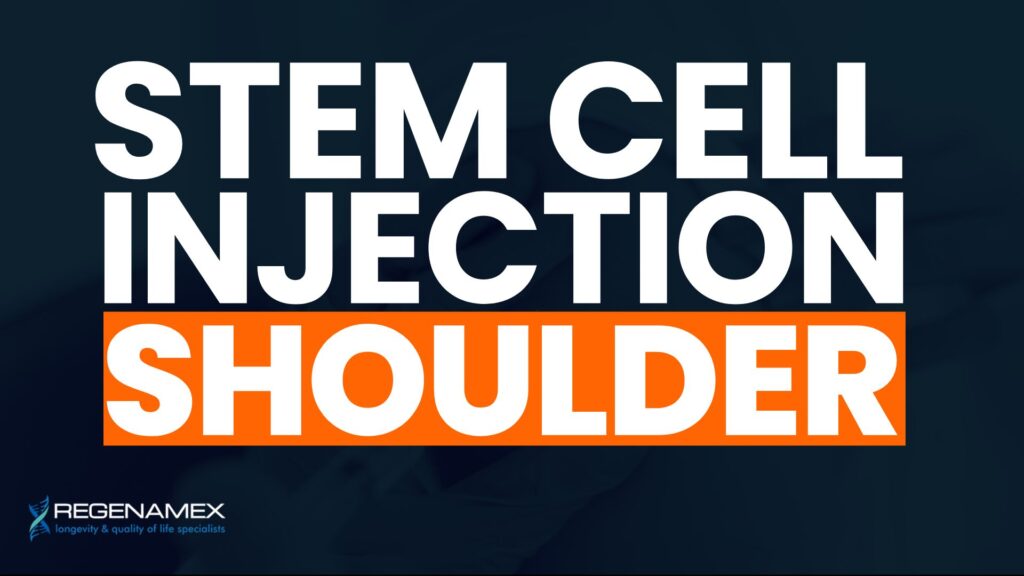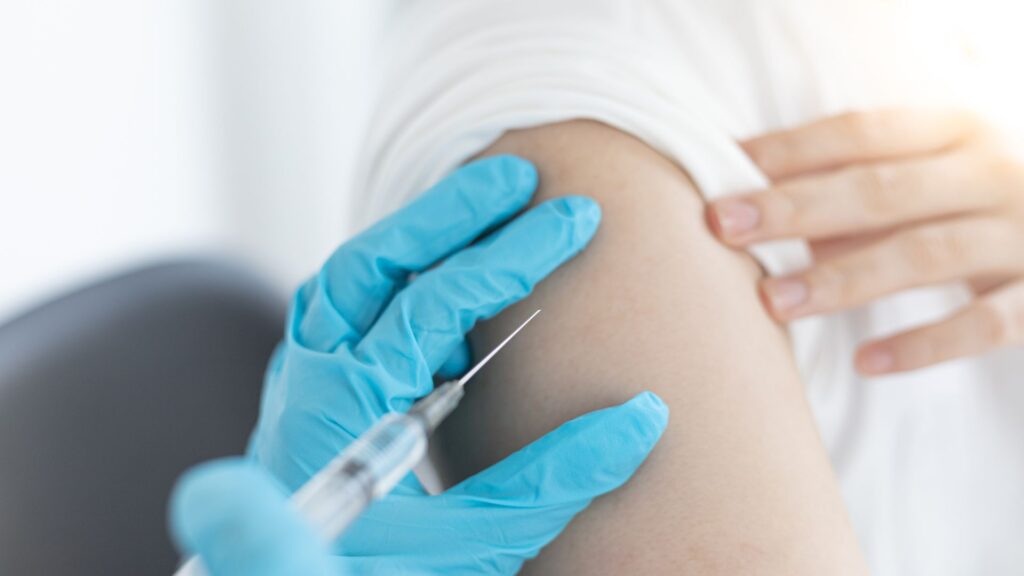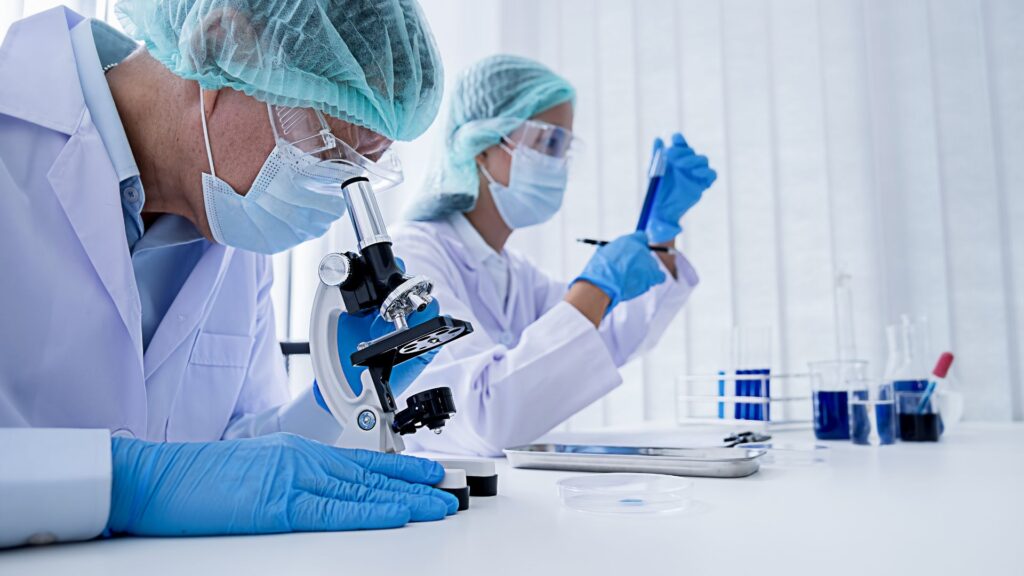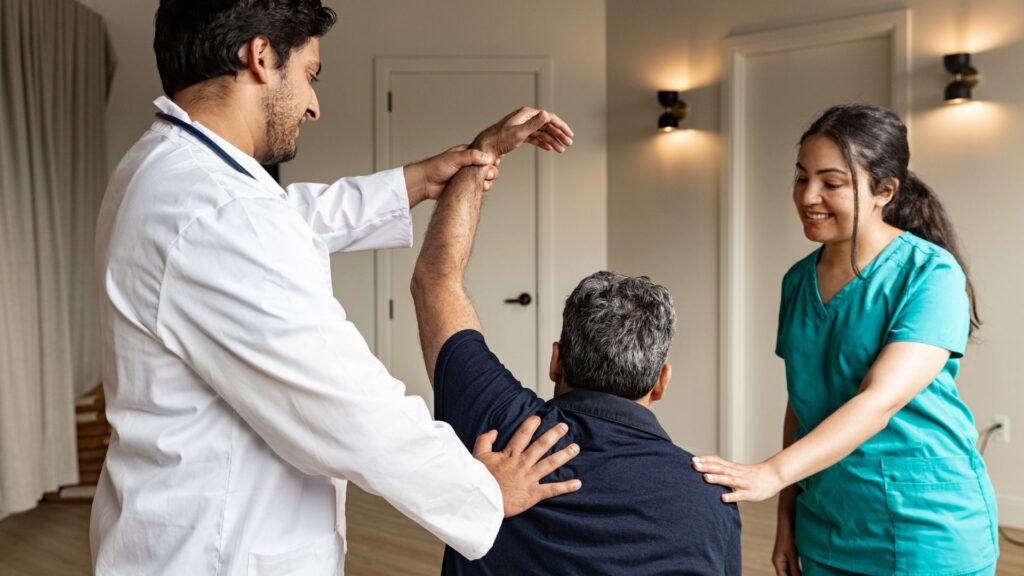
What Is Stem Cell Injection Shoulder and How Does It Work?
Stem cell injection shoulder therapy is a progressive, minimally invasive procedure designed to address chronic pain and joint dysfunction by introducing mesenchymal stem cells (MSCs) directly into the shoulder joint or surrounding structures. At its core, this approach taps into the body’s natural healing capacity. MSCs—especially those derived from Wharton’s jelly and placental tissue—are known for their ability to regenerate tissue, reduce inflammation, and restore function over time. These young and powerful cells can become various types of musculoskeletal tissue, making them ideal for addressing the wear-and-tear or acute injuries that plague many shoulder joints.
Once injected, these stem cells don’t just sit idle. They get to work through three primary mechanisms: first, they help modulate the immune response, preventing chronic inflammation that leads to joint damage. Second, they release bioactive molecules that act as signals to repair the tissue environment. And third, they begin to support the regeneration of damaged tendons, cartilage, and ligaments. This is markedly different from conventional cortisone shots, which only suppress pain temporarily. Stem cell injection shoulder therapy is more like pressing the reset button on joint health.
If you’re curious how this process works in real clinical settings, Regenamex provides a detailed overview on stem cell therapy in Mexico, highlighting its safe and regulated protocols.
Who Benefits from Stem Cell Injection Shoulder?

Stem cell injection shoulder treatments can help a wide range of people—from athletes who train hard to older adults dealing with long-term joint degeneration. The shoulder joint is one of the most mobile in the body, but it’s also one of the most prone to injury due to its complex structure and heavy daily use. People who benefit the most include those with partial or full-thickness rotator cuff tears, shoulder osteoarthritis, labral damage, or post-surgical pain that has not resolved with physical therapy or medication. This therapy is especially beneficial for individuals looking to delay or completely avoid joint replacement surgery.
Candidates typically include:
Individuals with rotator cuff tears
Patients with shoulder osteoarthritis
Those experiencing frozen shoulder or adhesive capsulitis
Athletes with repetitive strain injuries
People with tendonitis or labral tears
Post-op patients with limited recovery
Anyone suffering from chronic shoulder pain and inflammation
What sets Regenamex apart is our ability to personalize each treatment. We’ve helped patients who were told surgery was their only option regain comfort and mobility. We also treat athletes seeking recovery solutions that won’t sideline them for months. For more insight into our approach to orthopedic injuries, visit sports orthopedic injuries treatment.
Results You Can Expect with Stem Cell Injection Shoulder
When it comes to results, stem cell injection shoulder therapy doesn’t offer an instant fix—it delivers gradual, long-lasting healing. Most patients begin to feel subtle improvements within the first 2 to 6 weeks. This often includes less inflammation, reduced daily pain, and an increased range of motion. By the 3-month mark, many patients report being able to lift their arm higher, sleep through the night without discomfort, or return to low-impact activities like yoga or swimming. Regeneration continues over 6 to 12 months as stem cells rebuild and restore joint structures at a cellular level.
Unlike temporary treatments that merely mask symptoms, MSCs used at Regenamex support true biological healing. Patients with cartilage degeneration may even see improvements in joint spacing and cushioning, while those with tendon issues often gain strength and endurance in their shoulder movements. Long-term benefits can last well over a year and sometimes longer. We regularly hear patients say things like, “I haven’t been this mobile in years.”
To read about similar success stories and the science behind these outcomes, visit our page on rotator cuff tear stem cell treatment.
Why Mesenchymal Stem Cells from Wharton’s Jelly?

At Regenamex, we believe that where your stem cells come from matters just as much as how they are delivered. That’s why we only use mesenchymal stem cells derived from Wharton’s jelly and placental tissue—sources that are both ethically sound and scientifically proven to be more effective than adult-derived alternatives. Wharton’s jelly MSCs are neonatal, meaning they haven’t been exposed to aging, environmental stress, or disease, making them far more robust in their regenerative capabilities.
These cells possess potent anti-inflammatory and tissue-repairing properties, making them ideal for treating complex shoulder conditions. They are also immunoprivileged, which means they rarely provoke immune responses in recipients. This makes the therapy both safe and well-tolerated. In contrast, adipose and bone marrow-derived cells require invasive extraction procedures and are often less effective due to donor age and cellular exhaustion. At Regenamex, we don’t just aim for acceptable results—we pursue the best possible outcomes.
If you’d like to dive deeper into why we reject bone marrow and fat-derived options, take a look at our detailed explanation on cellular regeneration and enhancement.
How the Treatment Is Performed

Receiving a stem cell injection shoulder treatment at Regenamex is a streamlined, well-orchestrated experience that emphasizes comfort, safety, and long-term success. Each protocol begins with a comprehensive evaluation of your shoulder through imaging and clinical history. Based on your condition, we calculate a precise dosage—typically between 1 million and 5 million MSCs per kilogram of body weight.
The stem cells are then delivered directly into the affected area through ultrasound-guided injection for maximum precision. In some cases, an intravenous (IV) infusion is also used to provide broader systemic benefits. When neurological symptoms are present, intrathecal delivery may be considered. All procedures are performed by licensed regenerative specialists who ensure each step is carried out under strict clinical standards.
Patients usually stay at the clinic for 1 to 2 days. After the injection, we recommend a 24 to 48-hour period of light activity to allow the cells to settle and begin their work. Follow-ups occur at 1 month, 3 months, and 6 months, during which we track your progress and guide you with nutrition plans and customized exercises. This ongoing partnership is part of why so many patients feel supported throughout their recovery journey.
To understand the breadth of what we offer and explore conditions we treat, browse our full list of shoulder-related therapies.
Whether you’re recovering from a sports injury or trying to avoid shoulder surgery, Regenamex is here to help you heal with confidence.
🔗 Learn more about stem cell therapy in Mexico
🔗 Mayo Clinic: Regenerative Medicine Overview
Frequently Asked Questions About Stem Cell Injection Shoulder
Stem cell injection shoulder therapy is a modern, non-surgical approach to treating chronic shoulder pain, inflammation, and injury. It involves injecting mesenchymal stem cells (MSCs)—often derived from Wharton’s jelly—directly into the shoulder joint or surrounding soft tissue. These stem cells naturally seek out damaged tissue, reduce inflammation, and signal the body to begin its own repair process. Unlike cortisone injections or painkillers, which simply mask symptoms, stem cells aim to regenerate cartilage, tendons, and ligaments, restoring both structure and function over time. The result is a treatment that encourages healing at the cellular level while improving shoulder strength and mobility in the long term.
Most patients begin to feel some degree of relief within 2 to 6 weeks after the injection. Initial improvements often include reduced pain and inflammation, making everyday movements more comfortable. Over the next few months, continued healing typically leads to better shoulder function, range of motion, and strength. The full regenerative process can take between 3 and 12 months, depending on the extent of the injury and the body’s individual response. This is not a quick fix—it’s a therapy designed to promote long-term joint health and recovery.
Regenamex is widely recognized for its commitment to ethical stem cell use, high medical standards, and personalized patient care. We only use Wharton’s jelly-derived MSCs, known for their superior potency and regenerative ability. Our team includes experienced regenerative medicine specialists who tailor each protocol to the individual’s needs and health goals. Additionally, we support our international patients with concierge services, including travel assistance and multilingual staff. From the initial consultation to long-term follow-up, Regenamex prioritizes safety, transparency, and patient comfort.
At Regenamex, we exclusively use mesenchymal stem cells from Wharton’s jelly and placental tissue. These stem cells are ethically collected from donated umbilical cords and are not exposed to environmental toxins or the natural aging process that weakens adult cells. They are young, highly active, and ideal for regenerative purposes. We do not use bone marrow or fat-derived stem cells, which tend to be less effective and require more invasive extraction methods. Wharton’s jelly MSCs are the gold standard when it comes to anti-inflammatory and tissue-repair capabilities.
This therapy is suitable for adults experiencing shoulder pain, stiffness, or limited mobility caused by conditions like rotator cuff injuries, shoulder arthritis, frozen shoulder, or labral tears. It’s also ideal for individuals recovering from surgery who still experience pain, or athletes with chronic overuse injuries. However, each case is different. Our medical team conducts a thorough review of your medical history, imaging, and symptoms to determine if you’re a good candidate. Eligibility depends on the nature and severity of the injury and your overall health status.
In many cases, yes. While some severe conditions may still require surgical intervention, stem cell therapy can significantly delay—or even eliminate—the need for surgery, especially when applied early. Patients with moderate rotator cuff damage, cartilage loss, or inflammation often experience substantial improvement without going under the knife. It’s also a great option for those who are not surgical candidates due to age or medical risk factors. Stem cell injection shoulder therapy offers a way to heal naturally, without the long recovery times associated with surgery.

